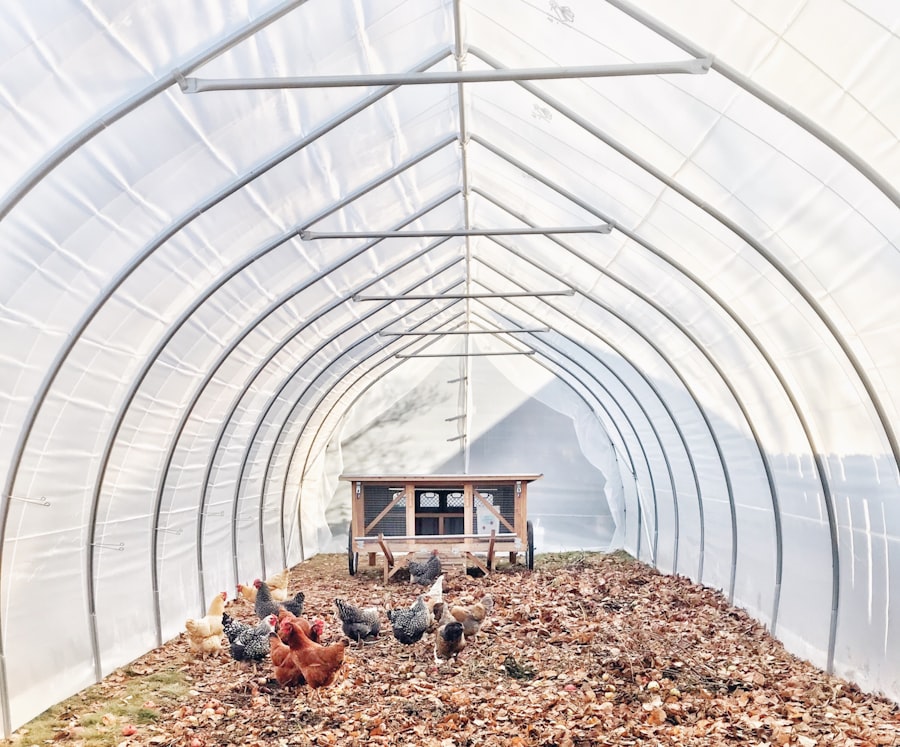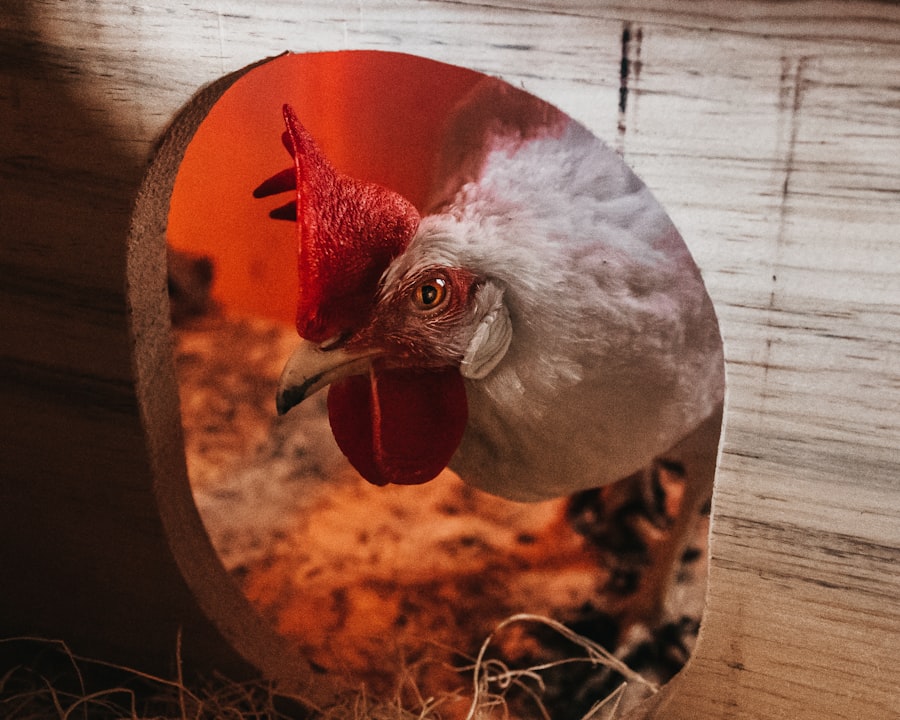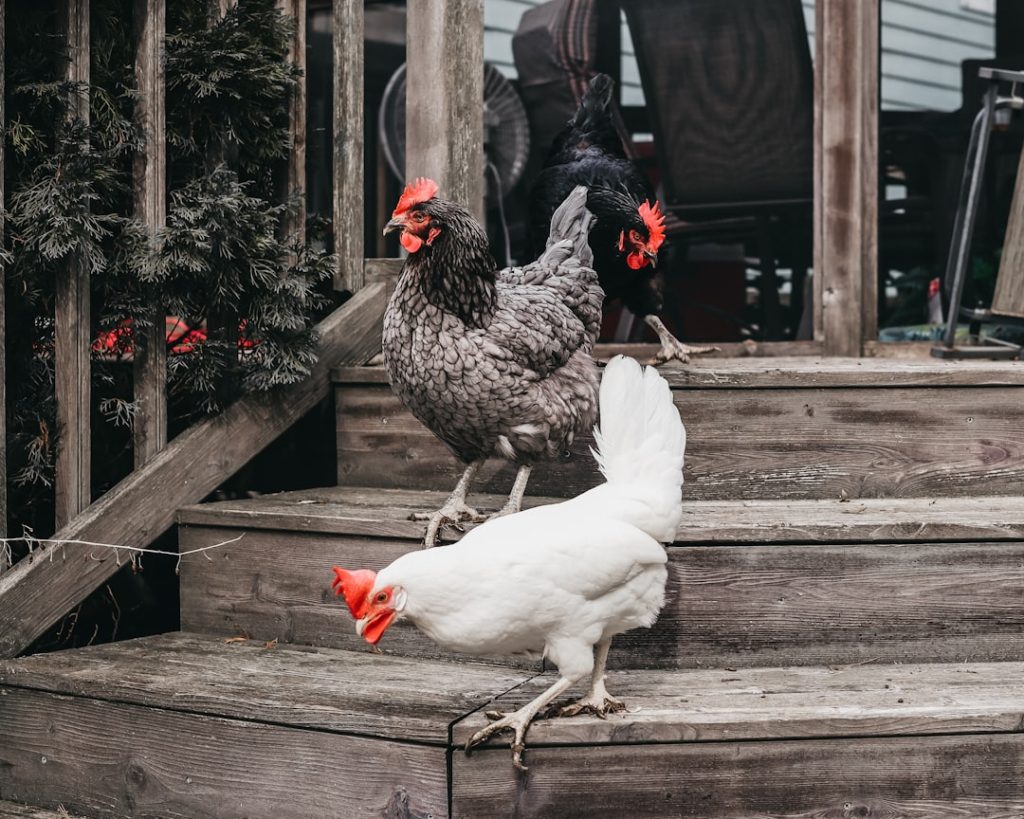Keeping chickens has become a popular hobby for many people, whether they live in rural or urban areas. There are numerous benefits to keeping chickens, including a fresh supply of eggs, natural pest control, and the joy of caring for these friendly and entertaining animals. Chickens are relatively low-maintenance pets and can be a great addition to any household.
However, there are also important considerations to keep in mind when deciding to keep chickens, such as predators and pests, health risks for humans, zoonotic diseases, property damage, and legal considerations. In this article, we will explore these factors in detail and provide tips for safe chicken keeping. Chickens are social animals that thrive in a flock environment.
They are relatively easy to care for and can provide a sustainable source of fresh eggs for your family. Additionally, chickens can help reduce food waste by eating kitchen scraps and providing natural pest control in your yard or garden. Many people also find joy in the companionship of their chickens and enjoy watching their quirky behaviors.
However, it’s important to be aware of the potential challenges that come with keeping chickens, such as the risk of predators and pests, health concerns for humans, zoonotic diseases, property damage, and legal considerations. By understanding these factors and taking appropriate precautions, you can ensure a safe and enjoyable experience with your backyard chickens.
Table of Contents
Key Takeaways
- Keeping chickens can be a rewarding experience, providing fresh eggs and a connection to nature.
- Predators such as foxes, raccoons, and birds of prey pose a threat to chickens and their eggs.
- Humans can be at risk for salmonella and other bacterial infections from handling chickens and their eggs.
- Zoonotic diseases like avian influenza and Newcastle disease can be transmitted from chickens to humans.
- Chickens can cause property damage by scratching and pecking at the ground and vegetation.
- Local regulations and zoning laws may restrict the number of chickens allowed and their housing requirements.
- To keep chickens safely, secure their coop from predators, practice good hygiene, and be aware of local laws and regulations.
Predators and pests
Common Predators of Chickens
Foxes, raccoons, hawks, owls, and even domestic dogs and cats are common predators of chickens. These animals are attracted to chickens as a source of food and can cause harm to your flock.
Securing Your Chicken Coop and Run
To prevent predators from gaining access to your chickens, it’s essential to take measures to secure your chicken coop and run. This can include using hardware cloth instead of chicken wire, installing locks on coop doors, and providing a secure roof to prevent aerial attacks.
Managing Pests and Maintaining a Healthy Environment
In addition to predators, chickens are also susceptible to pests such as mites, lice, and rodents. Regular cleaning and maintenance of the coop and nesting boxes can help prevent pest infestations. Providing dust baths for your chickens can also help them naturally control pests on their own. By being proactive in protecting your flock from predators and pests, you can ensure the safety and well-being of your chickens.
Health risks for humans

While keeping chickens can be a rewarding experience, it’s important to be aware of the potential health risks for humans. Chickens can carry bacteria such as Salmonella, which can be transmitted to humans through contact with their feces or by handling contaminated eggs. This can lead to foodborne illness if proper hygiene practices are not followed.
It’s important to wash your hands thoroughly after handling chickens or their eggs and to avoid bringing chickens into areas where food is prepared or consumed. In addition to bacterial risks, chickens can also carry allergens that may cause respiratory issues in some people. This is particularly important to consider if you or someone in your household has asthma or other respiratory conditions.
Taking precautions such as wearing gloves and a mask when cleaning the coop or handling chickens can help reduce the risk of exposure to allergens. By being mindful of these potential health risks and taking appropriate precautions, you can enjoy the benefits of keeping chickens while minimizing the risk to yourself and your family.
Zoonotic diseases
Zoonotic diseases are illnesses that can be transmitted from animals to humans. Chickens can carry several zoonotic diseases, including avian influenza, campylobacteriosis, and E. coli. These diseases can be transmitted through direct contact with infected birds or their droppings, as well as through consumption of contaminated eggs or meat. It’s important to be aware of the symptoms of these diseases and seek medical attention if you suspect that you or someone in your household has been exposed. To minimize the risk of zoonotic diseases, it’s important to practice good hygiene when handling chickens or their eggs. This includes washing your hands thoroughly with soap and water after handling chickens or their eggs, as well as avoiding contact with their feces. Additionally, it’s important to cook eggs and poultry thoroughly to kill any potential pathogens. By being aware of the potential for zoonotic diseases and taking appropriate precautions, you can reduce the risk of illness for yourself and your family.
Property damage
Keeping chickens can also pose the risk of property damage, particularly if they are allowed to free-range in your yard or garden. Chickens are natural foragers and may scratch up flower beds, vegetable gardens, or landscaping in search of insects and other food sources. Additionally, they may create dust bathing areas that can disturb the soil and vegetation in your yard.
To minimize property damage, it’s important to provide a designated area for your chickens to free-range that is separate from sensitive landscaping. In addition to potential damage from foraging behavior, chickens may also cause damage to structures such as fences or outbuildings if they are not properly contained. It’s important to secure your chicken coop and run to prevent escape and minimize the risk of damage to your property.
By providing appropriate containment for your chickens and managing their free-ranging activities, you can minimize the risk of property damage while still allowing your flock to enjoy the benefits of outdoor foraging.
Legal considerations

Local Ordinances and Zoning Laws
Some municipalities have specific zoning laws or ordinances that dictate the number of chickens allowed per property, as well as requirements for coop size, setback distances, and waste management. It’s crucial to research these regulations before getting chickens to ensure that you are in compliance with local laws.
Homeowner Association (HOA) Rules and Covenants
In addition to zoning laws, there may also be homeowner association (HOA) rules or covenants that restrict or regulate poultry keeping in your neighborhood. It’s essential to review any HOA guidelines before getting chickens to avoid potential conflicts with neighbors or HOA management.
Avoiding Legal Issues
By being aware of the legal considerations related to keeping chickens in your area, you can ensure that you are in compliance with local regulations and avoid any potential legal issues.
Conclusion and tips for safe chicken keeping
In conclusion, keeping chickens can be a rewarding experience that provides fresh eggs, natural pest control, and the joy of caring for these friendly animals. However, it’s important to be aware of the potential challenges and risks associated with poultry keeping, including predators and pests, health risks for humans, zoonotic diseases, property damage, and legal considerations. By taking appropriate precautions such as securing your coop against predators, practicing good hygiene when handling chickens or their eggs, minimizing property damage through containment and management, and being aware of local regulations, you can ensure a safe and enjoyable experience with your backyard flock.
To ensure safe chicken keeping, consider the following tips:
– Secure your coop and run against predators such as foxes, raccoons, hawks, and owls.
– Practice good hygiene when handling chickens or their eggs to minimize the risk of bacterial contamination.
– Be aware of the symptoms of zoonotic diseases and seek medical attention if you suspect exposure.
– Provide a designated area for free-ranging to minimize property damage.
– Research local ordinances and HOA regulations before getting chickens to ensure compliance. By following these tips and being mindful of potential risks, you can enjoy the many benefits of keeping chickens while ensuring the safety and well-being of your flock and yourself.
If you’re considering keeping chickens, it’s important to be aware of the potential dangers and challenges that come with it. One related article on Poultry Wizard discusses the need for a coop for turkeys, highlighting the importance of providing a safe and secure environment for poultry. The article, “Do Turkeys Need a Coop?”, offers valuable insights into the housing requirements for turkeys and the potential risks of not providing adequate shelter for poultry. This serves as a reminder of the importance of proper housing for all types of poultry, including chickens.
FAQs
What are the potential dangers of keeping chickens?
Some potential dangers of keeping chickens include the risk of disease transmission, attracting predators, and the potential for aggressive behavior from roosters.
Can chickens transmit diseases to humans?
Yes, chickens can transmit diseases to humans, such as salmonella and avian influenza. It is important to practice good hygiene when handling chickens and their eggs to reduce the risk of disease transmission.
How can I protect my chickens from predators?
To protect chickens from predators, it is important to secure their coop with sturdy fencing and locks, and to provide a safe and enclosed area for them to roam during the day. Additionally, using motion-activated lights or sound devices can help deter predators.
Are roosters dangerous to keep?
Roosters can be potentially dangerous to keep, as they may exhibit aggressive behavior, especially during mating season. It is important to handle roosters with caution and to consider the potential risks of keeping them, especially in urban or residential areas.
What are some common health issues that chickens may face?
Chickens may face common health issues such as respiratory infections, parasites, and injuries. It is important to monitor the health of chickens regularly and seek veterinary care if any health issues arise.
Meet Walter, the feathered-friend fanatic of Florida! Nestled in the sunshine state, Walter struts through life with his feathered companions, clucking his way to happiness. With a coop that’s fancier than a five-star hotel, he’s the Don Juan of the chicken world. When he’s not teaching his hens to do the cha-cha, you’ll find him in a heated debate with his prized rooster, Sir Clucks-a-Lot. Walter’s poultry passion is no yolk; he’s the sunny-side-up guy you never knew you needed in your flock of friends!







